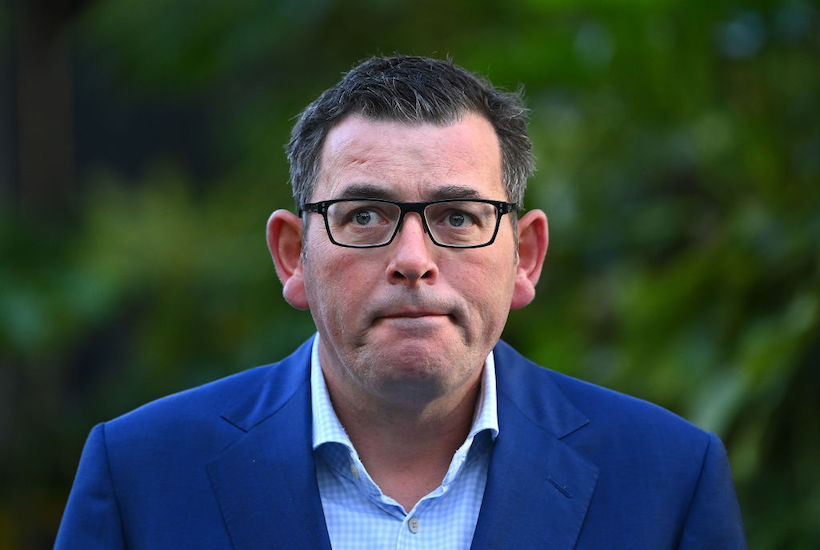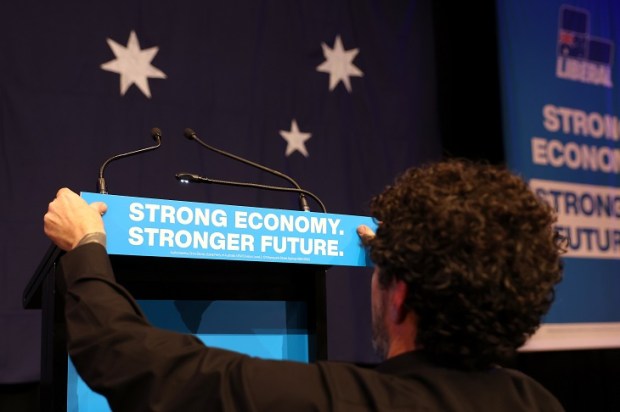The Andrews’ Labor government’s draconian response to the coronavirus pandemic has given all Victorians a taste of what it is like to live in a society ruled by the arbitrary whim of bureaucrats and politicians rather than the rule of law.
The cost of a mandatory economic and social shutdown, imposed by all Australian states to varying degrees, is being felt by everyone. The Institute of Public Affairs estimates that no fewer than 717,000 jobs have been lost as a result of the shutdown in the space of a few weeks. And this is likely to be a very conservative estimate of the costs as it doesn’t include those who have had their working hours reduced.
Astonishingly the restrictions which have caused this have not been introduced by a parliamentary vote. In Victoria, the measures have been introduced piece by piece by nothing more than the strokes of a pen and a media release from the premier’s office.
Premier Daniel Andrew’s April 16 declaration of a State of Emergency was made possible by a provision of the Public Health and Wellbeing Act which passed the Victorian parliament in 2008. Under section 198 the government can, on the advice of the Chief Health Officer and after consultation with the Emergency Management Commissioner, declare a state of emergency “arising out of any circumstances causing a serious risk to public health.”
The declaration of the state of emergency in Victoria gives to the Chief Health Officer arbitrary and unlimited powers “to do whatever is necessary to contain the spread of the [coronavirus] and reduce the risk to the health of Victorians”. The state of emergency was set to expire on 13 April but was extended for a further four weeks by the premier on Sunday. The government can extend a state of emergency by four-week increments for a maximum cumulative period of six months.
Victorian society is now tightly governed by the directives passed by medical bureaucrats. Using the emergency powers the Chief Health Officer and its authorised officers have made directions to the entire state to stay at home except for limited, specific purposes, restricted most in-person commercial and other public activities, and banned religious communities from congregating. The effect is to effectively reverse the presumption of innocence by requiring Victorians to justify to authorities why they would dare to be outside or be with other people.
If only there was a venue for these issues to be debated and scrutinised. But parliament has been nowhere to be found because parliament is also considered no longer essential. It was suspended in March and will return in full “at a date to be confirmed” but will sit briefly next Thursday to pass rental assistance laws.
Pointing out the problems in these policy responses is not to doubt the legitimacy of the crisis. This is a unique situation and all governments will be more active than usual in addressing it. However, it is not unreasonable to point out that the scope of the powers the state government has granted itself is out of proportion to the nature of the problem.
While the powers themselves are broad, they are in another sense being imposed narrowly. By doing “whatever is necessary” to “reduce the risk to the health of Victorians”, the government has refused to consider the health problems that arise from extended isolation and joblessness.
The government’s response is not isolated from the human cost of an economic and social shutdown. The decisions Australian governments are making now will affect all Victorians deeply. Indeed, the solution proposed under the State of Emergency may lead to a different kind of emergency altogether – an economic and mental health emergency arising from an isolated society that deprives millions of the dignity of work over an extended period of time. No direction of the Chief Health Officer has addressed these public health risks.
Every measure adopted contains a tradeoff in terms of closed businesses, the mental toll of joblessness, a permanent increase in government spending meaning higher taxes on future generations to pay down the massive increase in government debt.
These decisions may even be necessary in an emergency. But even in an emergency Australia’s democratic values and the accountability of lawmakers remains an ideal at the heart of our political system. Just because a government is required to be more active is not a good reason to shut down all checks and balances on the exercise of government power. Almost immediately the Victorian government granted itself unlimited power. The rule of the Chief Health Officer must now give way to the rule of law overseen by the elected parliament.
Morgan Begg is a research fellow at the Institute of Public Affairs. Join as a member at www.ipa.org.au.
Got something to add? Join the discussion and comment below.
Got something to add? Join the discussion and comment below.
Get 10 issues for just $10
Subscribe to The Spectator Australia today for the next 10 magazine issues, plus full online access, for just $10.


























Comments
Don't miss out
Join the conversation with other Spectator Australia readers. Subscribe to leave a comment.
SUBSCRIBEAlready a subscriber? Log in